Hanoi expands food supply market sources
According to the report from Hanoi Department of Agriculture and Rural Development, the city's self-production and supply capabilities meet the demand for pork, poultry, poultry eggs, freshwater seafood, and other agricultural food, with supply ranging from 20 per cent to 70 per cent.
To compensate for the remaining product shortages, in 2024, Hanoi Department of Agriculture and Rural Development and 43 cities and provinces maintained and supported 1,372 supply chains, an increase of 330 chains compared to 2023.
Hanoi maintains 170 safe agricultural and aquatic production and consumption linkage chains, with all supply chains from provinces and cities certified for food safety or equivalent conditions.
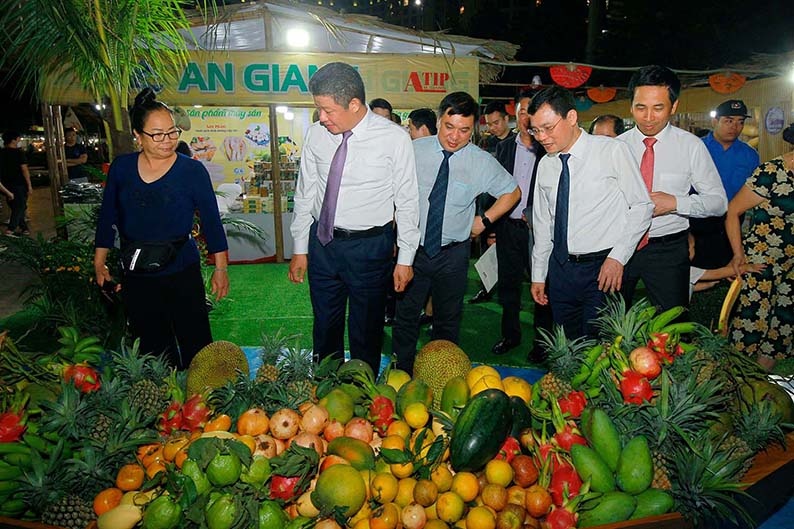 |
Nam Dinh, Thai Binh, and Mekong Delta provinces supply Hanoi with over 2,000 tonnes of rice per year, Lam Dong province provides over 66,000 tonnes of vegetables annually, Hoa Binh province supplies over 2,000 tonnes of various fruit and vegetables, and Tien Giang province provides Hanoi with over 200,000 tonnes of fruits per year.
Provinces and cities in the collaborative programme have also intensified support for cooperatives and enterprises participating in the One Commune One Product programme, a national initiative aimed at promoting high-quality goods tied to local agriculture, culture, and craftsmanship.
Nguyen Thi Huong, representative of Hadalifa Nutrition Company Ltd., a business specialising in clean agricultural product production and processing said that the company's products were now available in 35 provinces and cities nationwide, having entered challenging markets such as public and international preschool chains, establishing partnerships with GO Vinh supermarket, Lotte Vinh, Win Mart supermarket chains, and exporting to Russia, Thailand, and other countries.
Particularly, through supply demand connection conferences between Hanoi and other provinces, the company has accessed many partners, especially clean food store chains and convenience stores with high-quality requirements.
Alongside achievements, cooperation in ensuring food safety and connecting agricultural products between Hanoi and other provinces still encounters challenges. Some provinces have a limited number of supply chains to Hanoi compared to their potential.
The proportion of agricultural products supplied to Hanoi remains low. Some supply chains are incomplete, with medium and small-scale linkages, and connections between businesses and producers are sometimes not tight enough.
Product chain development and agricultural product quantities brought to Hanoi vary among localities due to inadequate production area planning, with few production zones meeting VietGap, GlobalGap, organic, and HACCP standards.
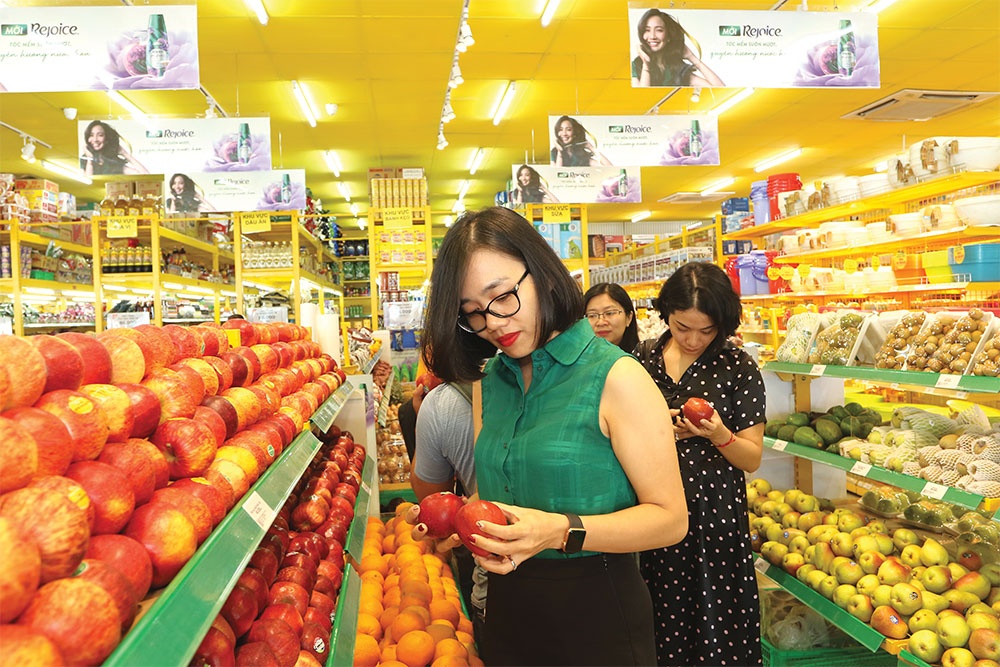 |
To address difficulties and provide clean, safe agricultural products for capital city consumers, Nguyen Dinh Hoa, deputy Director of Hanoi Department of Agriculture and Rural Development, suggested provinces should strengthen large-scale, high-tech, sustainable production chains with GAP, GMP, HACCP certifications.
“They should also develop brands, geographical indications, improve product design and packaging, and develop agricultural product chains leveraging each province's strengths to increase market share in Hanoi,” Hoa said.
Pham Van Duy, deputy director of the Department of Quality, Processing, and Market Development under the Ministry of Agriculture and Rural Development, said he appreciated the coordination between Hanoi and other provinces and cities in improving quality, hygiene, food safety; promoting trade, connecting agricultural, and aquatic food consumption.
“In the future, Hanoi needs to introduce convenient locations in districts, communes, distribution channels to support provinces and cities in organising product sales points in Hanoi according to demand, focusing on holidays, Lunar New Year, agricultural harvest seasons,” Duy said.
Additionally, Duy recommended that provinces and cities must prioritise agricultural product quality, grasp information about supply points, and require these points to ensure safety standards and food hygiene regulations to provide clean food for the Hanoi market.
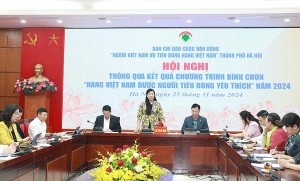 | Hanoi to announce top 150 products and services in 2024 One hundred fifty products and services selected by consumers will be honoured at the "Vietnamese Goods Favoured by Consumers" awards in 2024. |
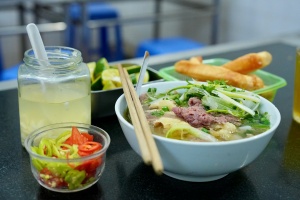 | Hanoi Culinary Culture Festival highlights the capital's Pho The Hanoi Culinary Culture Festival 2024 featured various activities exploring the unique charm of Hanoi's pho, a dish recognised as a national intangible cultural heritage, including robot-prepared pho. |
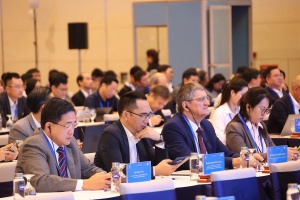 | Driving innovation in urban sustainability The Vietnam-Asia Smart City Summit 2024 is taking place from December 2-3, with a strong focus on technological solutions and management strategies to modernise urban infrastructure and develop smart, sustainable services for cities. |
What the stars mean:
★ Poor ★ ★ Promising ★★★ Good ★★★★ Very good ★★★★★ Exceptional
Related Contents
Latest News
More News
- Tet event in Japan celebrates success of 14th National Party Congress (January 25, 2026 | 10:04)
- 14th National Party Congress wraps up with success (January 25, 2026 | 09:49)
- Congratulations from VFF Central Committee's int’l partners to 14th National Party Congress (January 25, 2026 | 09:46)
- List of newly-elected members of 14th Political Bureau announced (January 23, 2026 | 16:27)
- 14th Party Central Committee unanimously elects To Lam as General Secretary (January 23, 2026 | 16:22)
- List of members of 14th Party Central Committee announced (January 23, 2026 | 09:12)
- Highlights of fourth working day of 14th National Party Congress (January 23, 2026 | 09:06)
- Press provides timely, accurate coverage of 14th National Party Congress (January 22, 2026 | 09:49)
- Press release on second working day of 14th National Party Congress (January 22, 2026 | 09:19)
- Minister sets out key directions to promote intrinsic strength of Vietnamese culture (January 22, 2026 | 09:16)

 Tag:
Tag:



















 Mobile Version
Mobile Version